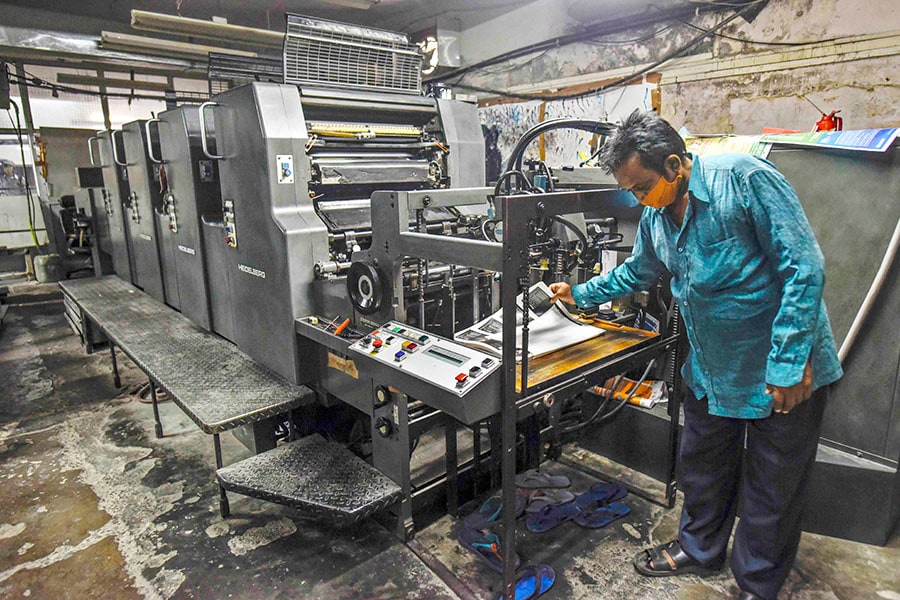
Interim Budget 2024 has precious little on MSMEs
Experts say that while the government has recognised the value of these enterprises competing globally, more needs to be done to support them with funds, infrastructure and policy
 A man working on an offset printer at a printing unit at Okhla industrial area in New Delhi, India. Image: Biplov Bhuyan/Hindustan Times via Getty Images
A man working on an offset printer at a printing unit at Okhla industrial area in New Delhi, India. Image: Biplov Bhuyan/Hindustan Times via Getty Images
The Micro, Small, and Medium Enterprises (MSME) sector, which contributes to about 30 percent of India’s gross domestic product (GDP), got little mention from Finance Minister Nirmala Sitharaman during her interim Budget speech. The government will ensure timely and adequate finances, relevant technologies, and appropriate training for MSME to grow and also compete globally, she said. “Orienting the regulatory environment to facilitate their growth will be an important element of this policy mix.”
The reforms introduced by the government for the MSME sector, which employs over 11 crore people, have supported smaller businesses to recover from the impact of the pandemic and grow further, as per the economic survey. Some of these are the Emergency Credit Line Guarantee Scheme (ECLGS), a revision in the definition of MSMEs under the ambit of Aatmanirbhar Bharat, the introduction of TReDS to address delayed payments for MSMEs, the inclusion of retail and wholesale trades as MSMEs, and the extension of non-tax benefits for three years in case of an upward change in the status of MSME.
“Under the PLI Scheme, involving an outlay of Rs1.97 lakh crore, 746 applications were approved till the end of December 2023, with 176 MSMEs being direct beneficiaries,” stated the survey.
It further added that the Union Budget for FY24 facilitated timely payments for MSMEs by allowing a tax deduction for expenditure incurred on payments made to them only when payment is actually made. The Udyam portal and the Udyam Assist Platform (UAP) have helped consolidate the information on MSMEs, with 2.24 crore MSMEs registered on the Udyam portal and about 1.2 crore units registered on the UAP. The government also launched the Emergency Credit-Linked Guarantee Scheme (ECLGS) to extend large volumes of credit to MSMEs. “Bank credit to MSMEs registered a CAGR of 14.2 percent from FY19 to FY24 (as of November 2023).”
There are larger issues to be addressed for MSMEs, but the government is not taking them seriously, and it's high time now, explains Sunil Desai, Managing Director of Richfield Engineering India Private Ltd. and member of MSME panels in different forums. As soon as MSMEs are delayed in making the installment on their borrowings, they are slapped with the recovery. The question is, either you go in to have the industry help them grow or you want to close down the MSME. He adds that the budget has no connection with the growth of MSME, and the industry has no connection with the architects of regulations.








